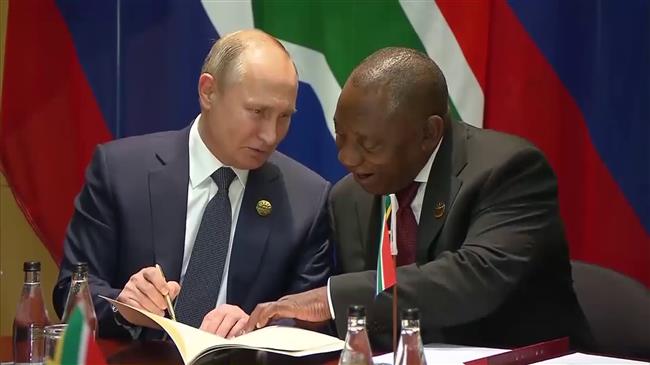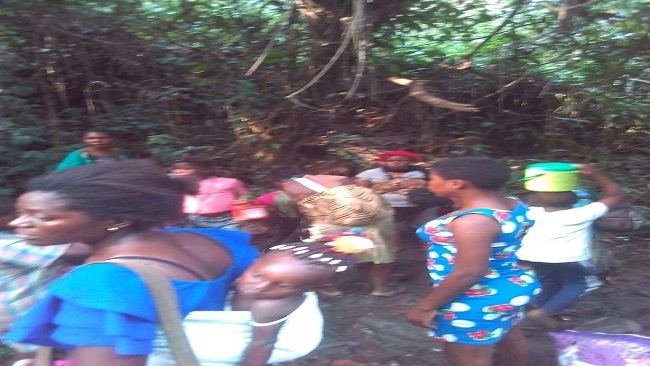20, October 2019
As Kremlin scrambles for Africa, Moscow university eyes soft power 0
As the Kremlin seeks to boost ties with Africa, a Moscow university that was a training ground for the continent’s elite during the Cold War is once again working to bolster Russia’s soft power.
The Peoples’ Friendship University of Russia, created in 1960 to improve Soviet ties with developing nations, counts among its alumni top politicians in Rwanda, Uganda, Mali, Chad, Angola, Botswana and other African countries.
But after the collapse of the Soviet Union in 1991, Russia’s interest in Africa declined and the institution briefly became better known for skinhead attacks on its students than for building bridges with the continent.
Now, as Moscow prepares for the first Russia-Africa summit on October 23-24, rector Vladimir Filippov says the university is reviving its status as a top destination for young Africans.
“Our task — and the task of Russia as a whole — is to revive the system that we once had during the Soviet Union” for the advanced training of Russian and foreign students, he said.
Filippov, a former education minister, told AFP he welcomes two African university delegations a month, on average, seeking to develop ties with the institution.
Around 1,200 African students are enrolled in the university, which is spread across several campuses in a southern district of Moscow.
During the Soviet period it was known as Patrice Lumumba University after the Congolese independence leader. Today it goes by the Russian acronym RUDN.
In a hall of the grey, Soviet modernist main building, Russian and foreign students mingle as members of the Guinean society dance to traditional music.
– Exporting Russian expertise –
Filippov says the university’s aim is not simply to attract African students to Russia, but also to export Russian expertise to the continent and vice versa.
Of RUDN’s cooperation agreements with 49 African universities, more than 20 were inked in the last two years.
In addition, RUDN has established Russian language centres in Namibia and Zambia.
The rector acknowledged that this increased activity was tied up with Moscow’s aim to develop its presence in some African nations.
“Of course it’s always a question of geopolitical interests and economics,” Filippov said.
The university is meanwhile hoping that some of its Russian students will spend time in Africa after they graduate. At the end of this month, RUDN will host its first “I Want to Work in Africa” careers fair.
The Soviet Union maintained a strong presence in Africa as part of its ideological war with the West, backing liberation movements and sending tens of thousands of advisors to former colonies that had gained independence.
Touting military cooperation, arms deals and investment, Russia is making a comeback on the continent and seeks to rival European countries and even China, analysts say.
Chimuka Singuwa, a 23-year-old Zambian who is working towards a master’s degree in international relations and diplomacy at RUDN, said he had the opportunity to study in Russia or China.
– Russia or China? –
He chose Moscow on the advice of his grandfather, who was a student at RUDN in the 1970s.
Singuwa said he had no regrets about passing up on a Chinese education.
“I’m kind of against the ‘takeover’ of Africa by the Chinese,” he said, pointing to the debt Zambia has accumulated with China, its main investor.
Singuwa will travel to the Russian resort town of Sochi to work as a volunteer at the Africa summit, which he described as a “great opportunity” for the regions to develop their relations.
RUDN hit international headlines in 2003 with a dormitory fire that killed 43 foreign students. Arson was never ruled out, and witnesses and rights groups criticised what they said was a slow response to the blaze.
At the time, foreign students also told media of racially motivated attacks.
But Singuwa said he had encountered little racism in Moscow.
“In some remote areas in Russia, where there’s one foreigner, that’s kind of difficult,” he said.
Ousmane Setibaye Sou, a 25-year-old undergraduate from Chad, told AFP he had come to Moscow expecting racism but had not experienced any.
He said he would like to help develop cultural relations between Russia and his home country.
“There are many people there who speak Russian,” he said, adding that dozens of Chadians had been coming to Russia to study every year since the 1970s.
“Even our former prime minister (Yusuf Saleh Abbas) was a student” at RUDN, he said.
Culled from AFP






























31, October 2019
Dr Fonyuy Nyuyki says Cameroon tops list of African medical students in Germany 0
The Cameroon Forum for Medical and Paramedical Sciences, Camfomedics now has a new leader. The German-based Non-Governmental Organization recently celebrated its 25th anniversary in the city of Essen. In this chat with the association’s new strongman, Dr Fonyuy Nyuyki, Camcordnews German Bureau Chief Tambe Ndip Arrah presents the man and his style
Cameroon Concord News: Goodbye Dr Ivo Azeh!!Welcome Dr. Fonyuy Nyuyki
Dr. Fonyuy Nyuyki: (laughs)Thank you, it´s always a pleasure sharing a conversation with you of the Cameroon Concord News Group
Cameroon Concord News: Let me begin by asking you Dr Fonyuy,What was unique about this 25th Anniversary and African Health Day?
Dr. Fonyuy Nyuyki: It wasn´t all about medical examination and test but also beneficiary to the participants was the dishing out of professional medical advice on how to live a healthy life style. Bringing Africans together via health care forums and information sharing workshops is striving for a healthier longer life for our people.
Cameroon Concord News: Dr. Ivo Azeh has handed over the baton of command to you. Are you going to maintain the status quo or are you coming into Camfomedics leadership with a new idea?
Dr. Fonyuy Nyuyki: Ivo is a legend (laughing). Actually, you know, he has done an amazing job, as you saw on the farewell presentation that we did for him! It´s was not all about praises because people spoke from their hearts and minds to express what they think about a man who brought honour and fame to Camfomedics
Of course there´s going to be permanency but we need to bring in some fresh concepts and revive some other things as I mentioned earlier during our general meeting session. There´s need to move Camfomedics forward. For instance, creating a lobby and mentoring group that will have key responsibility in guiding new medical students from Cameroon. The lobby group will also need to explain what our Cameroonian education system is all about to the Germany medical admission board. This will include inter alia the value of the Cameroon GCE Advance level vis-a-vis other African countries. Mindful of available statics in 2010, it will interest you to know that out of the 750 African medical students in Germany, 250 are from Cameroon and 140 from Nigeria. It’s like 1 in every 3 African medical student in Germany is a Cameroonian. This tells you that Cameroon is doing well in academic terms. Certainly, these numbers have been growing, and we need to build up and promote these figures which in turn will add up to the number of medical professionals.
Cameroon Concord News: We heard recently that Camfomedicas wants to get to the needy, in view of the socio-political situation in Cameroon. How do you intend to go about that?
Dr. Fonyuy Nyuyki: We have actually been doing something. War is not a good thing and its devastating effects in the societies are immense. Camfomedics is impartial, apolitical and we will help the victims irrespective of their background or political divide. We launched a fund to this effect and we are appealing to all races in planet earth to support this fund, so that we can together help the suffering people. We are collaborating with local organization to make sure that the aid gets to the affected population.
Cameroon Concord News: How is the relation between Camfomedics and your colleagues of the other medical associations in Germany, for example the German medical organization?
Dr. Fonyuy Nyuyki: The bill of health is positive. We have a good partnership, with the Deutsch Ärtzkammer – their boss was with us in Hamburg last year. Both at national and at regional level, we are pulling on well and we hope to keep this reputational relationship in a better and productive way.
Cameroon Concord News: Thank you very much for your time!It was nice talking to you Dr. Fonyuy Nyuyki.
Dr. Fonyuy Nyuyki: Thanks for having me.
Reported by Tambe Ndip Arrah